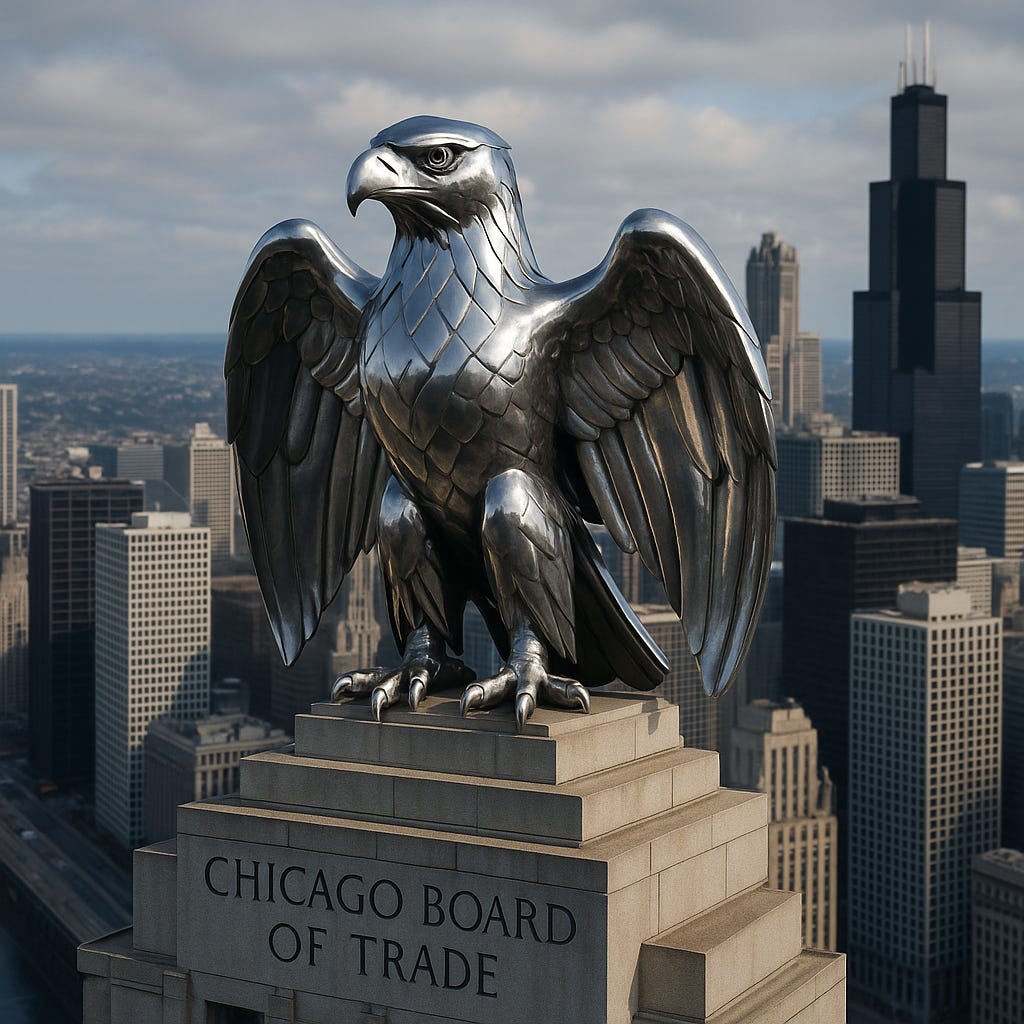The Stoic's Iron Condor: Finding Peace in Probabilities
Peace is about defining the boundaries or what you're willing to worry about.
What is the secret to tranquility and peace of mind? Can we define what we are willing to worry about?
This is a question that has guided both ancient philosophers and modern traders. The answers they found are remarkably similar. In our last conversation, we explored the improvisational nature of trading through jazz. Today, we move from the fluid to the structured. We’re going to build a fortress for our capital, and our minds using a strategy known as the Iron Condor.
The Financial Fortress: The Iron Condor
The Iron Condor is an options trading strategy designed to profit when a stock or index is trading within a specific range. It's not a bet on where the price will go, but rather a bet on where it won't go.
Forget the jargon for a moment and think of it like this:
You’re the landlord of a big, open pasture. The stock is your herd of cattle, grazing day to day. You don’t need them to march in a straight line or perform tricks, so you build two strong fences: a northern fence and a southern fence. Your deal is, "As long as the herd stays between my two fences for the next 30 days, I get paid."
That's an Iron Condor. It’s a bet on where the price won't go.
By defining this range, you create a zone of profitability. If the stock price stays within your boundaries, you simply collect your payment as time passes. The two primary forces you're managing are the market's fear, expressed in volatility, or Vega (ν) and the passage of time, or Theta (Θ). In this strategy, time is your greatest ally; with each peaceful day that passes, your profit becomes more secure.
The Philosophical Fortress: Stoicism
The ancient Stoics, like the philosopher-emperor Marcus Aurelius, had a similar strategy for life. They taught that peace of mind comes from building an "inner citadel"—a mental fortress.
The core idea is simple: separate what you can control from what you cannot. You can't control the economy, the weather, or what other people do. But you can control your own thoughts, your judgments, and your actions.
By building mental "fences" around the things you cannot control, you free yourself from useless anxiety. You create a safe inner space where you can act with purpose and clarity, regardless of the chaos outside.
"Time is a sort of river of passing events, and strong is its current; no sooner is a thing brought to sight than it is swept by and another takes its place, and this too will be swept away."
– Meditations, 4.43
The Synthesis: Peace Within Boundaries
Here is the beautiful connection: The Iron Condor is the Stoic's inner fortress built in the market.
The upper and lower fences of your trade are the walls of your citadel. You are explicitly defining the boundaries of what you are willing to worry about. The wild, unpredictable swings of the market are the external events you cannot control. You've accepted that.
Instead of being stressed by every little price movement, you have built a structure designed to profit from peace and stability. The passage of time (Θ) is the Stoic's reward for patience, calmly letting events unfold within the boundaries you've set. Your sensitivity to market chaos (ν) is low by design. You've chosen tranquility over turmoil.
This approach transforms trading from a frantic act of prediction into a deliberate practice of setting boundaries and managing probabilities.
The beauty of the Iron Condor, and of Stoicism, is that they don't promise to eliminate chaos. They offer a framework for prospering within it.
What boundaries have you set for yourself, in your portfolio or your life?



